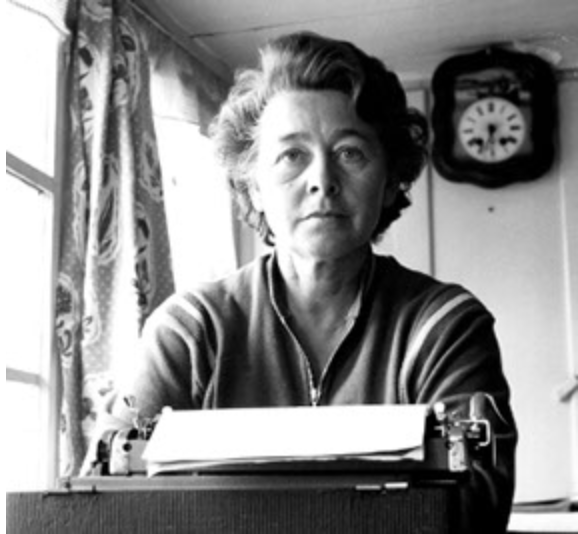BOOK REVIEWS
Margarete Buber-Neumann
Under Two Dictators: Prisoner of Stalin and Hitler
Survivor's tale in the camps of two tyrants
Margarete Buber-Neumann
Jonathan Cape
Daily Express
25 January 2008
In 1947 Margarete Buber-Neumann wrote a powerful memoir of her seven years of imprisonment in the Soviet Union and Nazi Germany between 1938 and 1945. Now published in Britain again after being out of print for over fifty years, this astonishing book deserves a new readership.
Married to a senior German Communist, Buber-Neumann and her husband had fled Hitler’s Germany in 1933, finding their way to Moscow in early 1935. There they fell victim to the Stalinist regime’s determination to hunt down German “Trotskyists” and “Counter-revolutionaries”. First, her husband was arrested and imprisoned in February 1937, the point at which her memoir begins, and she spent over a year desperately seeking information about him (though it was not until 1961 that she finally discovered for certain he had been shot as a traitor). Unable to emigrate or work, she gradually sold her possessions in order to buy food, and was herself arrested in June 1938, as were all wives of “traitors”.
She was sent to Karaganda, a sprawling camp with numerous sub-stations in the treeless steppe of Kazakhstan. As a “Political”, she and her ilk were despised by the common criminals and prostitutes who made up the rest of the population of 35,000 souls. Apart from living in foul conditions, with a single garment and a monthly soap allowance the size of a matchbox, being preyed on by bedbugs and lice, and facing near starvation, she was constantly exhausted from back-breaking work outdoors in the fields. But the worst aspect of life in the Gulag was making friends and then being separated from them. “A prisoner is strangely conservative,” she explains.
“Once he is settled down, even in our lousy, dirty huts, he is unwilling to move and have his life disturbed. What comes may be, and probably will be, worse. And, in any case, it is upsetting. It also means a separation from people he has got used to.” Indeed, the most frequently heard parting words of one prisoner to another were “please don’t forget me”.
During the brief period of the non-aggression pact between Nazi Germany and the Soviet Union, Buber-Neumann was among a small number of German Communists allowed to return home. Once there, however, she was accused of being a Communist spy and sent to the Ravensbruck concentration camp, where “everything was done with typical Prussian thoroughness”. In some ways, this was a pleasant contrast to the Gulag. The huts were relatively clean, prisoners were issued with basic clothing, and when Buber-Neumann had her first meal, consisting of sweet porridge with stewed dried fruit, a large piece of white bread, a piece of sausage, a portion of margarine and a portion of lard, she thought the fare so lavish that it must have been some sort of special occasion.
Yet there were different privations at Ravensbruck: becoming used to frequent inspections and twice-daily roll-calls in all weather conditions (“this endless waiting around was a torture”), constantly being ordered to stand to attention, and walking barefoot on gravel (“for months we had not been used to walking and standing”). Also, conditions deteriorated steadily from 1940 to 1945 as Ravensbruck expanded and was filled beyond capacity, and policy changes turned it into a slaughterhouse with first, the sick, then the “bed Politicals” – those who had defiled their Aryan racial origins by sleeping with Jews and other undesirables – being taken off to be shot or murdered by lethal injection or, in early 1945, gassed. Buber-Neumann was lucky to make it through the war.
Under Two Dictators is an extraordinary testament. Written in crisp, clear prose, without a smidgen of self-pity, it makes for an electrifying read. You might think it would be depressing, but on the contrary it is uplifting. Throughout its pages beats the heart of a survivor with a gift for compassionate observation and vivid description.



